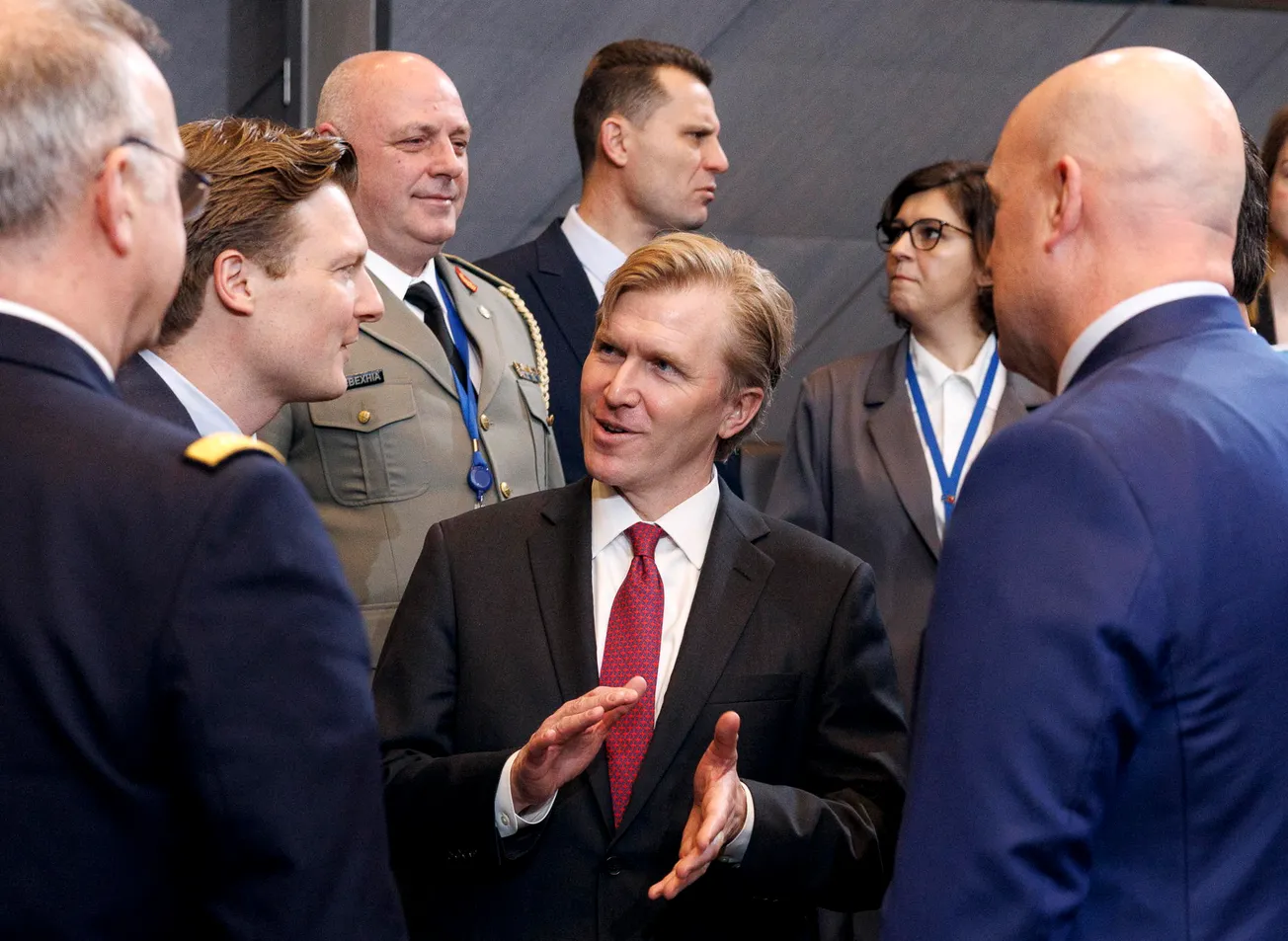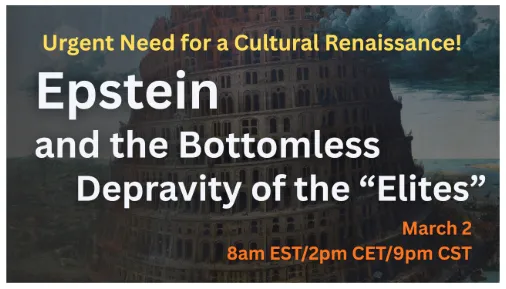The Lead
What Bends the Arc of Moral History Toward Justice?
by Jason Ross (EIRNS) — Apr. 23, 2025
”[H]uman progress has been the likely, but uncertain outcome of history considered in the large,” wrote Lyndon LaRouche, in his 1998 essay “The Substance of Morality.”
“It was clear to modern European civilization, that progress were always possible, but that progress did not necessarily occur in the manner a simple notion of physical science suggested,” he continued. “Stagnation, or worse, demographic and physical retrogression, often occurred. In the long, combined history and pre-history of mankind, only a few strains of cultural development have not been cast aside, rightly, as failed cultures. In known history, the catastrophic persistence of oligarchical forms of society, such as those of the ancient Mesopotamians, the Romans, Byzantium, and the Aztecs, illustrate the frequent case of cultures which, although more or less long-dominant, are best characterized as cultures ultimately self-doomed by their inherent lack of sufficient ‘moral fitness to survive.’” [Emphasis added.]
The current Anglo-American “elites” lack the moral fitness to survive. The financialization and militarization of the economy, the suicidal green assault on productivity, the insistence that the Anglo-American alliance will forever continue to be the preeminent power in the world, are all expressions of a moral failure.
But just as progress is not inevitable, neither is tragedy, as Shakespeare and other great dramatists demonstrate, through their works that indict, not merely an individual figure for personal failings, but rather the society in which that individual exists.
“In great Classical tragedy, the audience is horrified at the discovery that it entered the theater with a disposition for condoning the kinds of errors which led the tragic figures on stage to the latters’ doom. It is in that eerie sense of irony, that the true drama lies; there, thus, within the audience itself, lies the true ontological dimension of the Classical drama,” LaRouche writes.
Will today’s political actors dutifully play their assigned roles, or will we escape acting out our own tragedy today?
Many factors conspire to make this possible. The foundering financial systems of the trans-Atlantic threaten to disintegrate; they demand a new economic approach. The spectacular economic success of China, and its growing scientific and technological capabilities, demonstrate to the world that progress, indeed, very rapid progress, is possible. The inclination of U.S. President Trump toward peaceful resolution of both the NATO-Russia conflict playing out in Ukraine and the drummed-up Iran crisis, is an opportunity to build upon. In Europe, the anti-democratic nullification of elections and growing restrictions on individuals’ ability to speak and think freely, liberate other nations of the world to consider alternative approaches.
A worldwide effort to install a new security and development architecture, to operate based on an understanding of the human species and its history, consonant with our identity as the only known creative species—this is the needed remedy today.
The International Peace Coalition meeting today will address the terrible crises we face from the standpoint of the world as it should exist, fifty years from now.
Courageous action, guided by an impassioned, legitimate view of the future, can bend the arc of history.
Contents
New World Paradigm
Science and Technology
- Cardinals Begin To Gather at the Vatican (↓)
- Moscow Analyst Advocates Mars Mission among U.S., Russia, and China as a Catalyst for Russian Revival (↓)
U.S. and Canada
- Treatment of Jose Vega-Style Interventionist Ends in Lawsuit in Idaho (↓)
- NIH Conditions Grants on Not Boycotting Israel (↓)
- Putin's Portrait for Trump Captured His Courageous Gesture after Being Shot (↓)
Collapsing Imperial System
- Galbraith on Tariffs, U.S., China and Europe (↓)
- U.S. Military Activity in North Africa (↓)
- Ukraine Peace Deal: Don't Believe Everything You Read (↓)
- British Aircraft Carrier Heading to Indo-Pacific (↓)
- Israeli Foreign Ministry Orders, No Condolences for Pope Francis Allowed! (↓)
- U.S. Treasury Secretary Warns China Trade War 'Unsustainable'; Trump Says Tariffs Will Be Reduced (↓)
Strategic War Danger
- Israeli Cabinet Member Claims Republican Party Support for Food Depot Bombing (↓)
- U.S. Should Close Military Bases in Asia, Says Sachs (↓)
- Trump National Security Council Employee Formerly Worked for Israel Defense Ministry (↓)
- Israeli Temple Mount Fanatics Escalate, Seeking Religious Conflagration (↓)
Harley Schlanger Update
Watch The Daily Update with Harley Schlanger, a short video update available every weekday morning from The LaRouche Organization.







